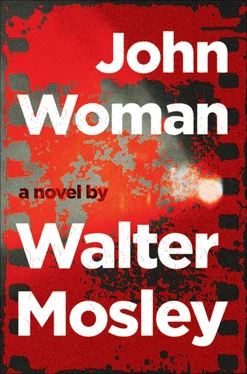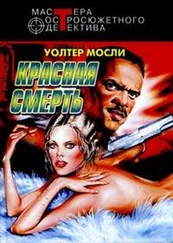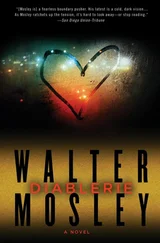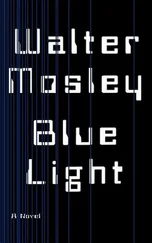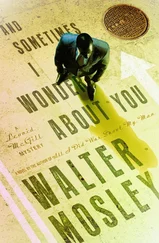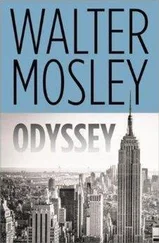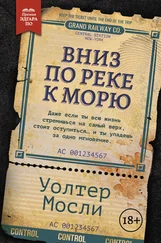“So it was you that had NUSW approach me,” John postulated.
“Actually it was Service himself. He was already dead, and this gave him more time to develop high-level membership. He shepherded you along from the time you were first offered the chance to apply for the position.”
“Like I was some kind of lab rat or something.”
Willie Pepperdine/Filo Manetti shrugged and gave a half smile.
“The Path is serious business, CC. Our goal is to actually change the course of human events so that people everywhere are on a road to salvation not destruction.
“Every year thousands of geniuses are born but almost all of them fall into poverty, mental illness, criminality, early death and other categories that waste their potential. We take in as many of these advanced beings as possible, giving them a chance to guide their myopic brothers and sisters.”
“So you and I are geniuses?”
“You are. If Service has his way you will be one of a triumvirate that will guide us after he’s gone.”
“He’s already gone.”
Ignoring these last words Willie said, “We approached France Bickman when our plans for you started, assured him that Oregon would never extradite a man in his nineties residing in a state-certified nursing home. I went to him myself. He truly loved your father. He told me that he owed him his life. I would like to have met the man.”
“He was a great man,” John said with pleasure. “He would put this whole conspiracy into perspective.”
“A conspiracy of freedom,” Willie Pepperdine declared.
“I made rose hip tea with scones and clotted cream I got from Dean and Deluca,” Lucia said, coming in from the kitchen.
“Freedom,” John mused. “The last man to offer me that was my father. Then he died and took all hope with him.”
The first month after the charges were dismissed reporters hounded John whenever he left his Soho apartment.
“Is your name Jones or Woman?” a journalist asked the first day. He decided to keep the name John Woman because that was the name he’d answered to his entire adult life. He enjoyed the irreverent, unnatural feelings it caused. Much like Lucia preferred Napoli to Tartarelli.
“Did you kill Chapman Lorraine?” a stout woman from the Post wanted to know. “How could you have not at least known? He was sealed in a wall next to the projectors.”
“Hidden,” John said because he was stuck next to her at a DON’T WALK light.
“Didn’t you wonder what happened to the closet?” she offered. “Maybe there were smells.”
“If someone sealed off the closet what could I do about that? And what odors did you encounter twenty years ago in the middle of the night when you were working a silent film projector, doing homework and worried about your father who was slowly dying?”
“That never happened to me,” said the thirtysomething reporter. Her face was pudgy and her copper-rimmed glasses magnified impudent eyes.
“And I never knew about the dead man until just this year,” John stated when the WALK sign appeared.
John usually ignored the reporters though he didn’t mind engaging them. Oddly, the more they asked about the murder the further he felt from the crime.
One older black man calling himself Sharkey Lewis claimed to be a freelance journalist and offered to do an in-depth profile in which John could tell his story the way he wanted to.
“That way you can make sure the public has your side of it,” Sharkey claimed.
As a rule Lewis wore a green-and-black herringbone jacket and dark brown slacks. He was short and probably hadn’t gained a pound since he was a teenager.
“There’s no further story I wish to tell, Mr. Lewis,” John said. “I went to school every day, ran a projector most evenings and then read to my father before we both went to sleep. He died and I left those jobs and responsibilities behind me.”
One day there were no reporters waiting outside. The restless thirst of the public for news had moved on to a hockey player who had beaten his wife’s sister in an out-of-town motel; a troop transport aircraft that was downed by militant jihadists in Iraq; and finally to a billionaire landlord in Cincinnati who had called a group of striking tenants a bunch of ungrateful niggers.
John’s story got shuffled out of the news deck.
The reporters were gone but there was still hate mail from dozens of sources. Letters with no return addresses came to his mother’s mailbox, most of them forwarded from Parsonsville, Arizona. Angry, anonymous citizens condemned him for being a murderer, a liar, pretending he was something he was not. They cursed and threatened him, invoked God’s name to sentence him to hell.
Not all of these were unsigned.
Arnold Ott wrote once a week making various complaints. In one rambling condemnation he claimed that John’s perfidy (the actual word the cuckolded boyfriend used) caused him to rue his education. In another letter he said that Carlinda wanted to sue John for giving her herpes.
John wondered if his ex-lover had made this complaint because he hadn’t exhibited symptoms of the STD.
But even Arnold’s vituperations ran their course. One day he received a short note from Carlinda.
Dear Mr. Woman:
You are of course aware of me because of our association in your class at NUSW. I will not complain about your misrepresentation of yourself in that circumstance because what I learned was valuable and I believe that one must recognize experience for what it is. One concept you taught, amor fati, allows me to see my life as a positive experience giving me no reason to regret anything.
I’m writing you, Mr. Woman, to tell you that it has come to my attention that my fiancé, Arnold Ott, has been writing derogatory letters to you, sometimes on my behalf. I became aware of these letters when he asked me to marry him and I asked if he was still bothered by our old friendship. When he told me about his hectoring letters I told him that I would agree to marry him only if he never mentioned you to me or contacted you ever again.
I believe that this should end our relationship and that there will be no further reason for us to be in contact in the future.
Sincerely,
Carlinda Elmsford
John read the letter over and over. He felt a sense of loss inside those overly formal, haplessly passionate words. Though he and Carlinda never loved each other they were, in his estimation, the same breed. They understood the world they lived in with almost pure objectivity. This understanding was like a sturdy fishing boat afloat on a sea of many passions.
Her visit in the Phoenix jail plus this letter effectively ended their connection, making him a dog without a pack. This sense of loss sent him into a depression that lasted for many weeks.
He went to the Strand Bookstore after there was no more he could glean from Carlinda’s Dear John letter. He bought for the third time in his life The Story of Civilization by Will and Ariel Durant: eleven thousand pages or so of erudition unrestrained by obsessive scholarship — a long, long story of the western world bereft of proof but filled with the truth of culture.
He read the pages out loud, before an empty chair, imagining Herman installed therein. He’d read for hours, feeling loss with every word and re-revelation, to the apparition of his father sitting there, nodding despondently, wondering why Cornelius wouldn’t let him go to be one with the phenomenal universe: the true history of everything.
At night he wandered the streets of Soho hoping to see the half-Asian prostitute again. He always wore the belt that Hototo had given him in another lifetime.
Читать дальше
